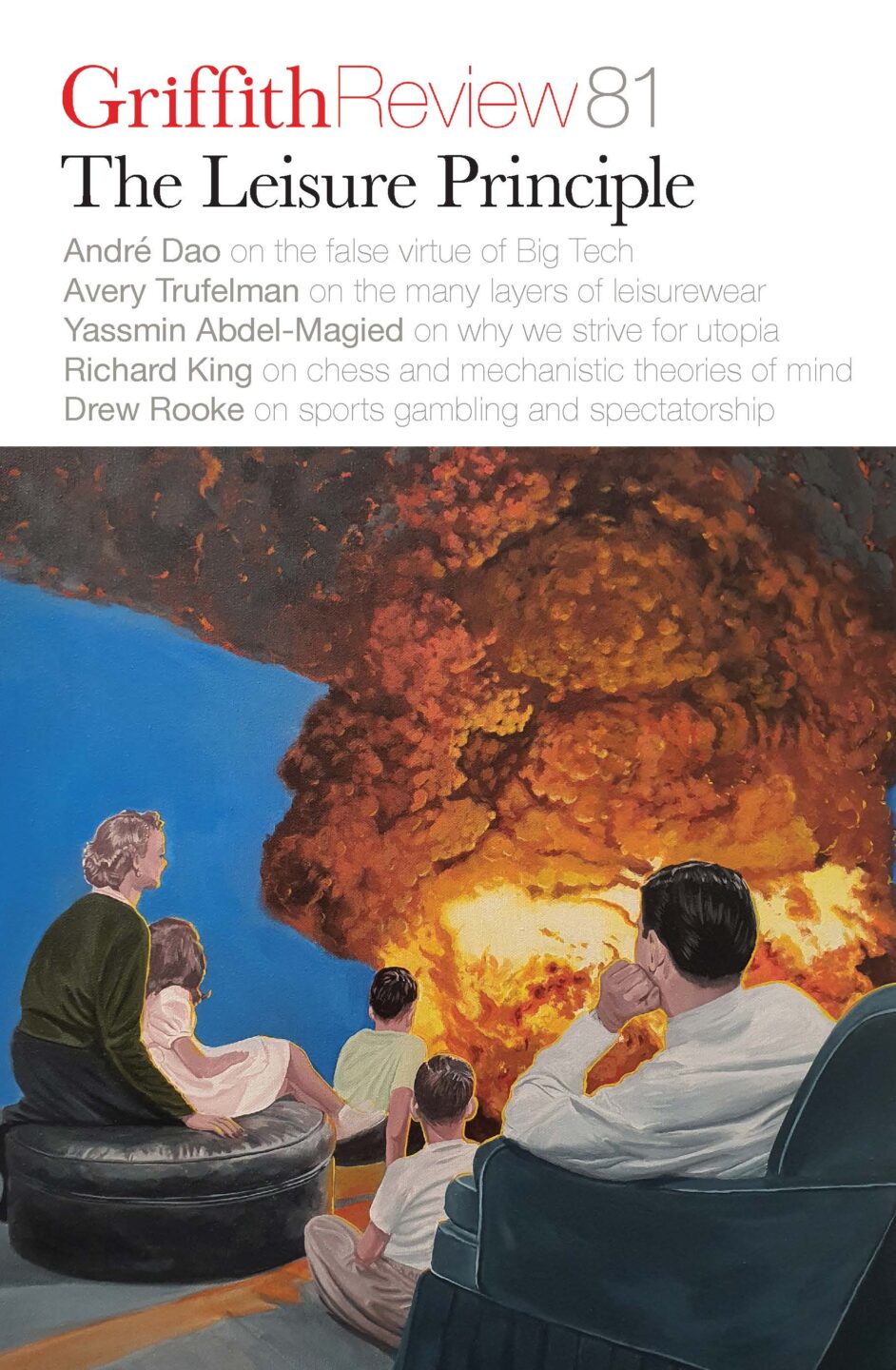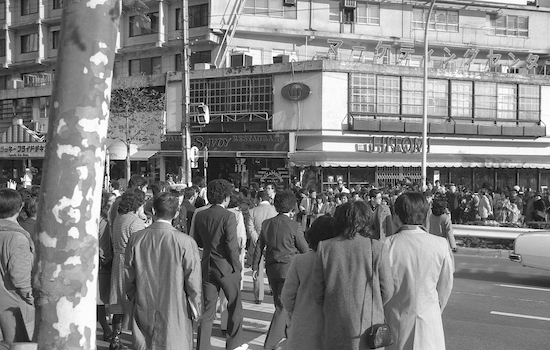Featured in

- Published 20230801
- ISBN: 978-1-922212-86-3
- Extent: 200pp
- Paperback (234 x 153mm), eBook


Already a subscriber? Sign in here
If you are an educator or student wishing to access content for study purposes please contact us at griffithreview@griffith.edu.au
Share article
More from author

felix and jango
Poetry two black cats patrol our street felix and jango I can’t tell them apart when I see one of them walking past I say, ‘hey felix or jango’ they...
More from this edition

We will never be modern
Non-fictionMy Instagram feed, an information-stream cosplaying as a hyper-relevant town square, has undergone a radical transformation in the past few years. Whereas once that endless deluge teemed with benign yet revealing snapshots of friends moving through the motions and milestones of life – brunches, holidays, weddings and pregnancies – today’s experience is far removed.

The rise and decline of the shopping mall
FictionPerhaps it is instructive to consider how archaeologists of the future may conceive malls. How might they seem, these empty labyrinths – like rituals that had to be endured in order to receive goods and services? As great monoliths, colosseums constructed for our entertainment? As places of worship? Or perhaps malls will seem more like pyramids do to us: mysteries to be unravelled when the tracks of global trade and communication have faded...

Revolutionary wave
Non-fictionThis was the late ’60s, early ’70s and surfing in Wales was regarded by the parent generation as delinquency. It was for losers, layabouts, rogue males. In those early days Welsh surfers numbered around one hundred, congregated on half a dozen beaches down fifteen miles of coastline west of Swansea, known as the Gower. I knew each one of those surfers by the styles they deployed on the waves. So idiosyncratic was early Welsh surfing that out on the road if you saw a car with boards on the roof coming at you, both drivers would pull over for a chat.